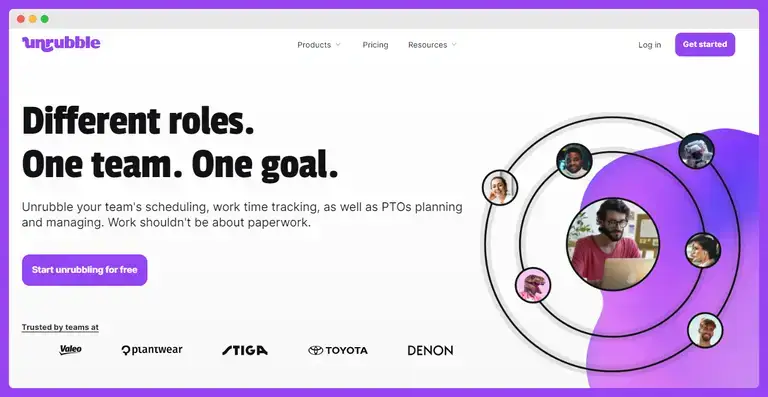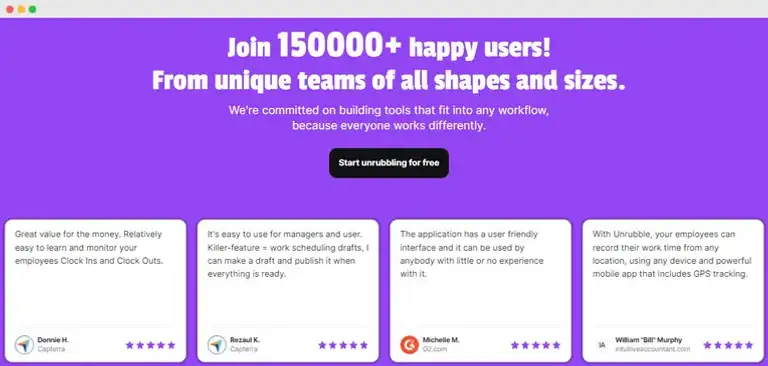Imagine a workplace where employees get to pick when they want to work.
Sounds impossible? Nothing more false.
That's the magic of shift bidding.
What is it? How does it work? What does it look like? Who uses it and can it really be good?
Find out from this article.
What is the shift bidding process?
Shift bidding is a process where employees express their preferences for specific work shifts, and employers use this input to determine who gets assigned to those shifts. This practice is common in industries where work hours can vary, such as retail, hospitality, healthcare, and manufacturing.
How does shift bidding work?

Here's how it generally works:
Announcement of available shifts
The employer first announces the shifts that need to be filled. This could be for a specific time period, like a week or a month.
Expression of interest
Employees then express their interest in particular shifts. This could involve submitting their preferences based on their availability, personal schedules, or any other relevant factors.
Ranking or allocation
The employer reviews the employees' preferences and uses a system to allocate or rank the shifts. The allocation process could be based on seniority, performance, or a combination of factors.
Awarding the shifts
Once the employer has made decisions, they inform the employees about the shifts they've been awarded. This information is crucial for employees to plan their work and personal lives effectively.
Shift bidding in practice - an example schedule
Let's say a retail store needs employees to cover four shifts in a week: Monday morning, Wednesday afternoon, Friday evening, and Sunday closing.
Employees submit their preferences, and the employer assigns points based on various factors like seniority, performance, or even a bidding system where employees bid points for shifts.
- Employee A bids 30 points for the Monday morning shift.
- Employee B bids 20 points for the Wednesday afternoon shift.
- Employee C bids 25 points for the Friday evening shift.
- Employee D bids 15 points for the Sunday closing shift.
The employer, considering factors like seniority and performance, awards the shifts.
If Employee A has the highest combined score, they might get the Monday morning shift. The process repeats for the other shifts. The points system provides a fair way to prioritize shifts based on employee preferences and other relevant criteria.
Bidding in shifts helps in creating a more flexible and employee-friendly work environment. As such, it allows individuals to have a say in their schedules and promotes a sense of fairness in shift distribution.
What are the advantages and disadvantages of shift bidding
Shift bidding can be both good and bad for your workplace. What are the potential opportunities and threats that come with it?
The positive sides of using shift bidding include:
Flexible shift patterns
Through the shift bidding system, employees can bid on the shifts that align with their preferences. This creates more flexible and personalized shift patterns.
Open shift opportunities
Open shifts, which are often challenging to fill, can be efficiently allocated through shift bidding. Better coverage and reduced scheduling gaps are then easier to achieve.
Improved work-life balance
Staff can bid on the shifts that better suit their personal commitments. As such, employees can expect an improved work-life balance and overall well-being.
Fairness and transparency
A well-managed shift bidding system, especially when integrated with scheduling software, promotes fairness and transparency in the allocation of shifts.
On the other hand, there are the following drawbacks:
Conflict over desirable shifts
The competitive nature of the bidding process may lead to conflicts among staff competing for highly desirable shifts. Such competition can potentially impact team dynamics.
Complex shift swap logistics
Coordinating shift swaps can be logistically challenging, especially in larger teams. This is because it requires careful monitoring and management.
Potential for inefficiencies
If not well-managed, the bidding may result in inefficiencies, with shifts going unbid or frequent changes disrupting the overall schedule. The result of it is typically affected workflow stability.
Administrative burden
The management of the bidding process, particularly in large teams, can be administratively demanding without the support of efficient scheduling software.
In summary, while the shift bidding process offers numerous advantages in terms of flexibility and employee satisfaction, careful attention must be given to its management to mitigate potential conflicts and inefficiencies.
Which industries use shift bidding? Call center & others
Shift bidding is used across various industries where work schedules involve multiple shifts and flexibility is essential.
Some of the industries that commonly employ shift bidding include:
Call services
In call centers, where operations often run 24/7, shift bidding allows employees to express preferences for different shifts. This helps in managing call volume fluctuations.
Healthcare
Hospitals, clinics, and other healthcare facilities often employ shift bidding to accommodate the need for round-the-clock patient care. This includes scheduling nurses, doctors, and support staff for different shifts.
Retail
Retail establishments, especially those with extended hours or operating in busy locations, use this type of shift schedule to manage employees for morning, evening, and weekend shifts.
Manufacturing
Industries involved in manufacturing that operate multiple shifts can benefit from shift bidding to ensure a continuous production process.
Hospitality
Hotels, restaurants, and other hospitality businesses utilize shift bidding to manage staffing needs. This is common, especially during peak times such as weekends or special events.
Transportation
Industries involved in transportation, including airlines and logistics companies, take advantage of shift bidding to schedule pilots, drivers, and other personnel around the clock.
Security services
Security companies may incorporate shift bidding to manage staffing for various security shifts. The purpose of that is to keep adequate coverage at all times.
Energy and utility industry
Industries such as power plants and utilities often operate continuously, which requires shift bidding to manage workers responsible for maintenance, operations, and emergencies.
Public safety industry
Police departments, fire stations, and emergency services benefit from shift bidding when it comes to scheduling personnel for 24/7 coverage.
Technology support
IT support and technology companies that provide 24/7 customer service often use bidding on shifts to maintain support coverage at all hours.
The common thread among these industries is the need for continuous operations or services, leading to the use of shift bidding to create flexible and employee-friendly schedules. This approach helps in optimizing workforce management.
Use shift bidding better with Unrubble
Shift bidding with Unrubble is a game-changer for teams!

Here's how you can make the most of it:
Employee self-service app
Unrubble's Employee Self-Service app empowers your team to manage their schedules independently. No more complications - just easy, straightforward scheduling right from their pocket.
Real-time notifications
Stay in the loop with instant updates. Thanks to real-time updates, everyone stays informed. Unrubble ensures there are no more communication gaps.
Mobile accessibility
Let your employees clock in and out from shifts anytime, anywhere with Unrubble's mobile app. Your team can manage their schedules on the go, which promotes a collaborative and dynamic work environment.
Efficient automation
Say goodbye to manual shift management hassles. Unrubble automates the entire process, saving time for both managers and employees. Its scheduling is made efficient, allowing you to focus on what matters most.
Boost your shift bidding with the Unrubble solution. Let your employees gain control over their work for maximum satisfaction. Start unrubbling for free and experience the difference today!

Workforce management made easy.
What are your thoughts now? Are you going to implement this type of shift allocation into your weekly shift pattern? Would you be interested in recommending it to your manager?
If so, don't forget to use Unrubble for a smooth experience.
We're excited to give you the best possible help when it comes to shift bidding.
FAQ
What is bid on shift?
Bid on shift, or shift bidding, is a process where employees express interest in open shifts during a bidding period, aiming to secure their preferred shifts based on availability and seniority.
What is a shift bid in a call center?
In a call center, a shift bid is a scheduling process where agents have the opportunity to pick particular shifts. This is often based on performance metrics, with higher-performing agents choosing their shifts first.
What is bid scheduling?
Bid scheduling involves employees selecting shifts they prefer to work. This process helps ensure that shift assignments align with employee schedule preferences, contributing to a better work-life balance.
What is the meaning of bid of work?
The meaning of a bid of work involves employees or contractors proposing their terms or availability to work on a particular shift or project, often through a formal bidding process within the scheduling system.
How to bid on shift key?
To bid on a shift key, employees typically use a self-scheduling platform provided by their employer where they can view open shifts and submit their preferences for the shifts they desire to work.
What happens when you bid?
When you bid, you are essentially indicating your preference for certain work schedules. Your bid is considered along with others' in the final schedule, often influenced by seniority or performance.
What are the benefits of shift bidding?
The benefits of shift bidding include giving employees control over their work schedules, leading to improved satisfaction and work-life balance. It also facilitates varying shift patterns, which can accommodate personal obligations and preferences.
What is shift booking?
Shift booking is the process where employees select shifts they wish to work from a list of available options, typically using a digital platform. This form of shift scheduling allows for more flexible and democratic handling of work hours, promoting fairness and transparency within the international workplace group.








